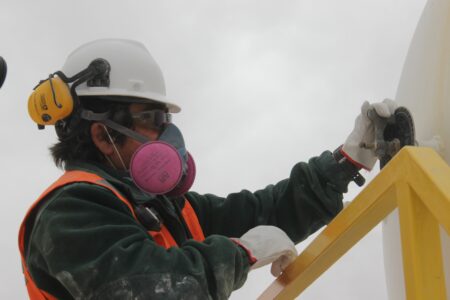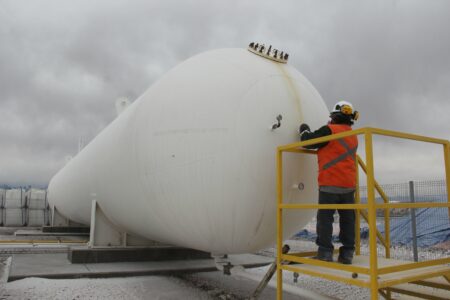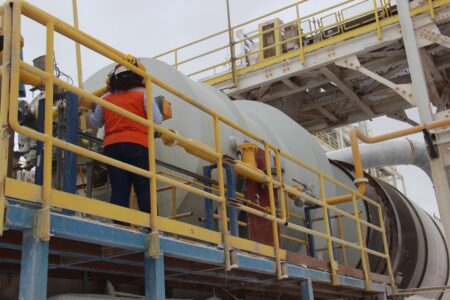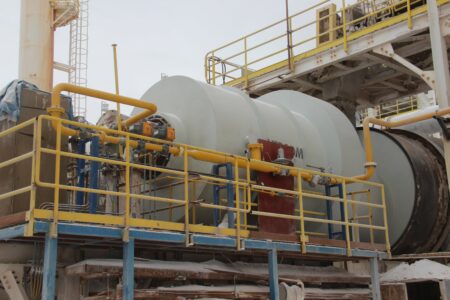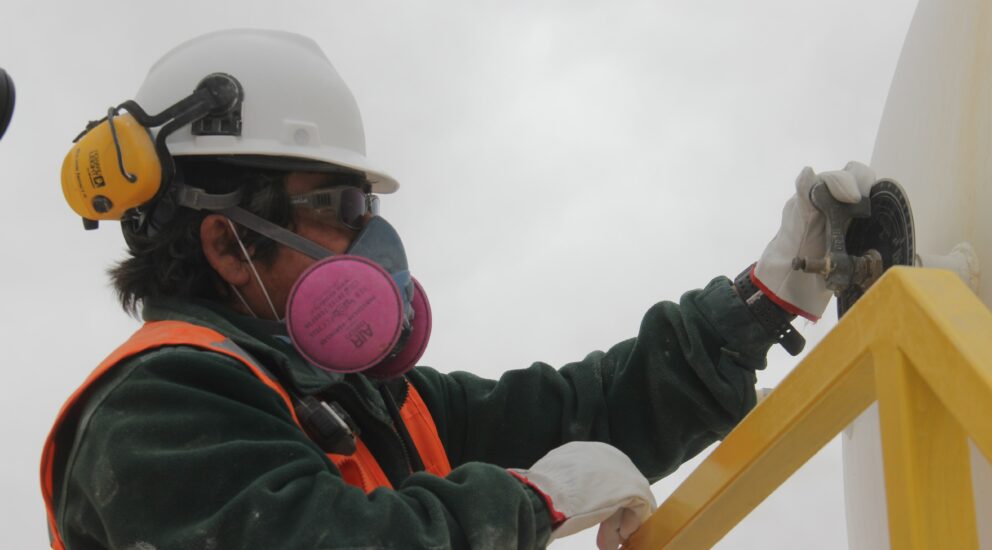
Salar Builds the Sustainable Future Today
31/Jul/2021
Retrofitting equipment to be powered by gas instead of diesel is a major step forward in reducing the carbon footprint, and at Salar de Atacama they know it. The team at the MOPGIII Plant did just this, changing dryers from diesel to gas.
As a leader in the processing and sale of mining products, SQM is committed to sustainable development and compliance with environmental regulations in force.
Accordingly, last year it incorporated sustainability as a new value, which involved committing to several short-, medium- and long-term goals; one of these goals is to be carbon neutral in iodine, lithium and potassium chloride by 2030, and in all our products by 2040.
In this spirit, each of our facilities are implementing diverse actions to prevent, reduce or mitigate the effects of our operations or to develop and implement technological advances and best practices that allow for sustainable development.
One of the many sustainability-related actions being taken by the Salar de Atacama Production Department is that of retrofitting dryers at the MOPGIII Plant (Granulated Potassium Chloride) through its project “Changing from Diesel to Propane.”
As explained by Juan Albanez, Superintendent of Potassium Production, this initiative was launched in 2015 as a joint effort from the Plant Operations and Projects areas. During this first phase, the project started small by acquiring and installing a gas storage tank. However, due to a sharp rise in supply costs, this project was put on hold and then taken up again in 2020 by the Salar de Atacama Production Department.
“This idea is closely related to improvements in product quality and cuts in operating costs but, above all, because of its contribution to SQM’s commitment to reducing the carbon footprint of our processes and products. Thanks to this project, we slashed particulate matter (PM) emissions from the MOP G III dryers by 47% and carbon dioxide (CO2) generation by 18%,” stated Albanez.
To fully comprehend its impact, the reduction in CO2 emissions at the MOP GIII Plant is equivalent to the amount generated by 714 cars, while the PM figure is analogous to 58 homes.
This is not the only sustainability initiative from the office of the Superintendent of Potassium Production. In 2020 it expects to consolidate its waste management and reduction efforts, recycling both bulk bags and tarps and incorporating reusable bulk bags into the plant’s processes.
Whiter Product
As for the improvement in product quality generated by this change in fuel, Gilbert Maldonado, Production Manager at Salar de Atacama, explained how, during the period in which dryer #2 has been operating with propane, “We have noted greater stability in temperature control of gases, the chamber and the product. We have seen a substantial improvement in operations at the MOP GIII Plant, which translates into less variability when compacting and greater stability in the facility’s thermal balance.”
“In addition, we have better combustion, which improves the product’s tonality (i.e., makes it whiter). However, we still need to retrofit dryer #1 for propane, which should happen soon. That will improve our ability to verify the quality and tonality of the product,” the executive explained, adding that a timeline should be outlined by the end of July of this year, according to projections.
For the Salar Production Department, these areas’ efforts to seek out and promote measures aligned with achieving future sustainability are very significant. They have managed to form a true “network of sustainable actions” in Atacama, which is intended to guide and drive important changes along these lines.
“I would like to spotlight the efforts of the office of the Superintendent of Potassium Production, since it brought about an important change to reduce carbon dioxide emissions at Salar de Atacama, which definitely will be an example for workers from other areas in the division or other parts of the Company. I would like to motivate all our people to continue coming up with ideas and planning changes that help us build the future today,” Maldonado concluded.
